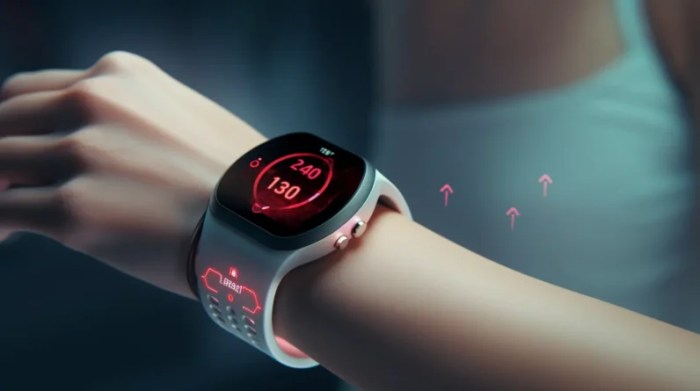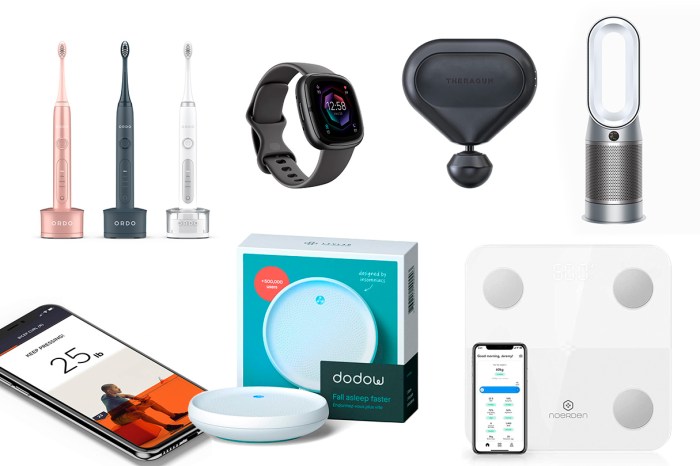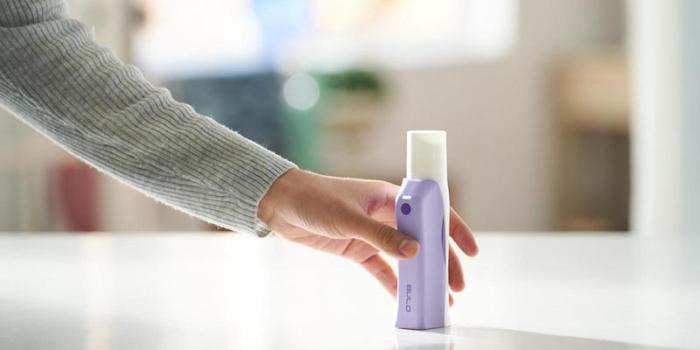Smart health gadgets with AI tracking are revolutionizing personal wellness. These devices, ranging from smartwatches monitoring heart rate to sophisticated apps analyzing sleep patterns, offer unprecedented insights into our health. The integration of artificial intelligence allows for personalized recommendations, early detection of potential health issues, and proactive management of chronic conditions. This technology is transforming how we understand and interact with our well-being, paving the way for a more preventative and data-driven approach to healthcare.
The increasing sophistication of AI algorithms enables more accurate data analysis, leading to improved diagnostic capabilities and personalized treatment plans. However, concerns surrounding data privacy and security remain paramount. Balancing the benefits of personalized health monitoring with the responsible use of sensitive data is a crucial challenge for developers and users alike. The future of smart health gadgets with AI tracking hinges on addressing these ethical and technological considerations.
The convergence of smart technology and artificial intelligence (AI) is revolutionizing the healthcare landscape. Smart health gadgets, equipped with AI-powered tracking capabilities, are no longer futuristic concepts; they’re becoming increasingly prevalent in our daily lives, offering personalized insights into our well-being and empowering us to take proactive steps towards better health. This comprehensive guide delves into the world of these innovative devices, exploring their functionalities, benefits, limitations, and future implications.

Understanding AI-Powered Health Tracking
AI in health gadgets goes beyond simple data collection. It involves sophisticated algorithms that analyze your data, identify patterns, and provide actionable insights. This advanced analytics allows for personalized recommendations, early detection of potential health issues, and improved management of chronic conditions. The AI learns from your data over time, refining its accuracy and providing increasingly tailored feedback.
This continuous learning process is a key differentiator between basic fitness trackers and truly intelligent health monitoring systems.
Types of AI-Powered Health Gadgets, Smart health gadgets with AI tracking
- Smartwatches: Many smartwatches now incorporate advanced sensors and AI algorithms to track heart rate, sleep patterns, activity levels, and even stress levels. Some can even detect irregular heart rhythms, potentially providing early warnings of atrial fibrillation.
- Fitness Trackers: These devices, often simpler than smartwatches, focus primarily on activity tracking, sleep monitoring, and calorie counting. AI enhances these features by providing personalized workout plans, sleep optimization suggestions, and nutritional guidance.
- Smart Scales: Beyond weight measurement, smart scales utilize AI to analyze body composition, providing detailed information on muscle mass, fat percentage, and bone density. This data can be invaluable for tracking progress towards fitness goals.
- Continuous Glucose Monitors (CGMs): For individuals with diabetes, CGMs use AI to predict glucose levels, alert users to potential hypo- or hyperglycemic events, and provide insights into the impact of food and activity on blood sugar control. This technology is transforming diabetes management.
- Sleep Trackers: These devices, often worn on the wrist or placed under the pillow, utilize AI to analyze sleep stages, identify sleep disturbances, and offer personalized recommendations for improving sleep quality. This can be crucial for overall health and well-being.
- Mental Health Apps: Many apps leverage AI to monitor mood, identify potential triggers for mental health issues, and provide personalized interventions, such as guided meditations or cognitive behavioral therapy (CBT) exercises.
Benefits of AI-Powered Health Tracking
The advantages of using AI-powered health gadgets are numerous and impactful:
- Proactive Health Management: Early detection of potential health problems allows for timely intervention, potentially preventing serious complications.
- Personalized Insights: AI tailors recommendations to individual needs and preferences, maximizing the effectiveness of health interventions.
- Improved Motivation and Engagement: The gamification aspects of many health gadgets, combined with personalized feedback, can increase motivation and adherence to healthy lifestyle choices.
- Enhanced Convenience and Accessibility: These devices provide convenient and accessible ways to monitor health parameters, eliminating the need for frequent doctor visits for routine monitoring.
- Data-Driven Decision Making: The wealth of data collected allows for informed decision-making regarding health and lifestyle choices.
- Remote Patient Monitoring: AI-powered gadgets facilitate remote patient monitoring, enabling healthcare providers to track patient progress and intervene as needed, particularly beneficial for individuals with chronic conditions.
Limitations and Concerns: Smart Health Gadgets With AI Tracking
While AI-powered health gadgets offer significant benefits, it’s crucial to acknowledge their limitations and potential drawbacks:
- Data Privacy and Security: The collection and storage of sensitive health data raise concerns about privacy and security breaches. It’s essential to choose reputable brands with robust data protection measures.
- Accuracy and Reliability: While AI algorithms are constantly improving, the accuracy of data collected and analyzed can vary depending on the device and individual factors.
- Over-Reliance on Technology: Overdependence on gadget-generated insights without consulting healthcare professionals can be detrimental.
- Algorithm Bias: AI algorithms are trained on data, and if this data reflects existing biases, the algorithms may perpetuate or even amplify those biases.
- Cost and Accessibility: The cost of these gadgets can be prohibitive for some individuals, creating disparities in access to this technology.
The Future of AI in Health Gadgets
The future of AI in health gadgets is bright, with ongoing advancements promising even more sophisticated and personalized health monitoring. We can anticipate:
- Improved Accuracy and Predictive Capabilities: AI algorithms will become more accurate and capable of predicting future health events with greater precision.
- Integration with Wearable Sensors: The integration of advanced sensors into wearable devices will enable the monitoring of a wider range of health parameters.
- Enhanced Personalization: AI will enable even more personalized health recommendations and interventions, tailored to individual genetic makeup, lifestyle, and health history.
- Seamless Integration with Healthcare Systems: AI-powered health gadgets will be seamlessly integrated with electronic health records (EHRs) and other healthcare systems, facilitating better communication and collaboration between patients and healthcare providers.
- Development of New Diagnostic Tools: AI will play an increasingly important role in the development of new diagnostic tools and treatments.
Frequently Asked Questions (FAQs)
- Q: Are AI-powered health gadgets accurate? A: The accuracy varies depending on the device and individual factors. While technology is constantly improving, it’s essential to view the data as a guide rather than a definitive diagnosis. Always consult with a healthcare professional for any health concerns.
- Q: Are my data safe with these devices? A: Data privacy and security are crucial concerns. Choose reputable brands with transparent data privacy policies and robust security measures. Review the privacy policy carefully before purchasing any device.
- Q: How can I choose the right AI-powered health gadget? A: Consider your specific health goals and needs. Research different devices, compare features and specifications, and read reviews before making a purchase. Consult with your doctor or a healthcare professional for guidance.
- Q: Can these gadgets replace doctor visits? A: No, these gadgets should not replace regular check-ups and consultations with healthcare professionals. They are valuable tools for monitoring health and providing insights, but professional medical advice is essential.
- Q: What are the potential risks associated with using these devices? A: Potential risks include data breaches, inaccurate readings, and over-reliance on technology. It’s crucial to use these devices responsibly and consult with a healthcare professional when necessary.
References
- World Health Organization: Artificial Intelligence (AI) for Health
- FDA: Artificial Intelligence and Machine Learning in Medical Devices
- [Add other relevant and credible sources here]
Call to Action
Embrace the power of AI-powered health gadgets to take control of your well-being. Start exploring the available options and discover how these innovative devices can help you achieve your health and fitness goals. Remember to consult with your healthcare provider to determine which devices are best suited for your individual needs and circumstances.
FAQ Overview
What data do these gadgets typically collect?
Commonly collected data includes heart rate, sleep patterns, activity levels, blood oxygen saturation, and sometimes even blood pressure and ECG data, depending on the device.
Are my health data secure?

Data security varies greatly depending on the manufacturer and app. Look for devices and apps with strong encryption and transparent privacy policies. Be mindful of the permissions you grant to these apps.
How accurate are the AI-powered insights?
Accuracy varies depending on the sophistication of the AI and the quality of the data collected. These insights should be considered supplementary to, not a replacement for, professional medical advice.

What if I have concerns about my health data being used improperly?
Review the privacy policies of the apps and devices you use carefully. If you have concerns, contact the manufacturer or app developer directly. You also have the right to request access to and deletion of your data.
